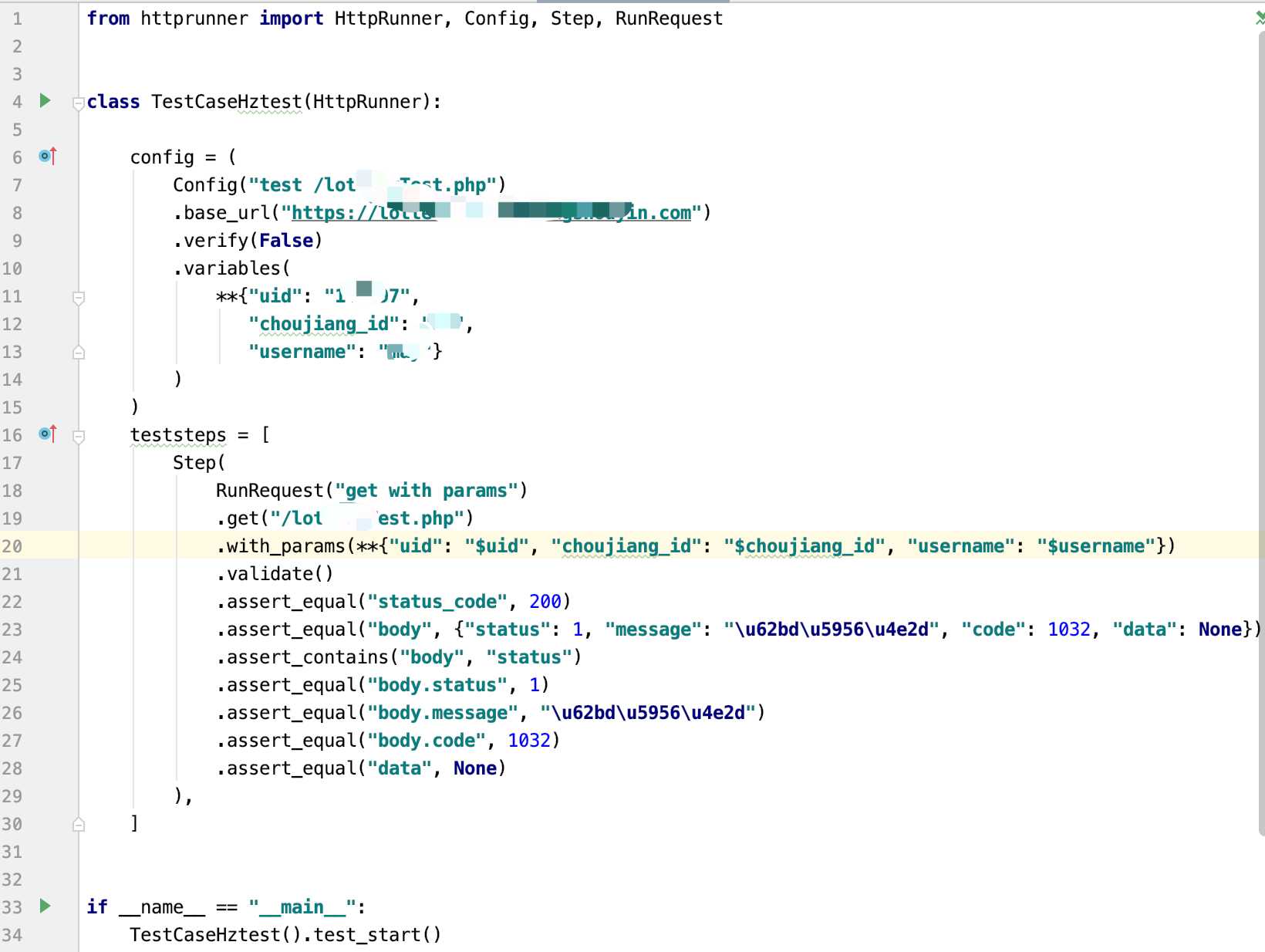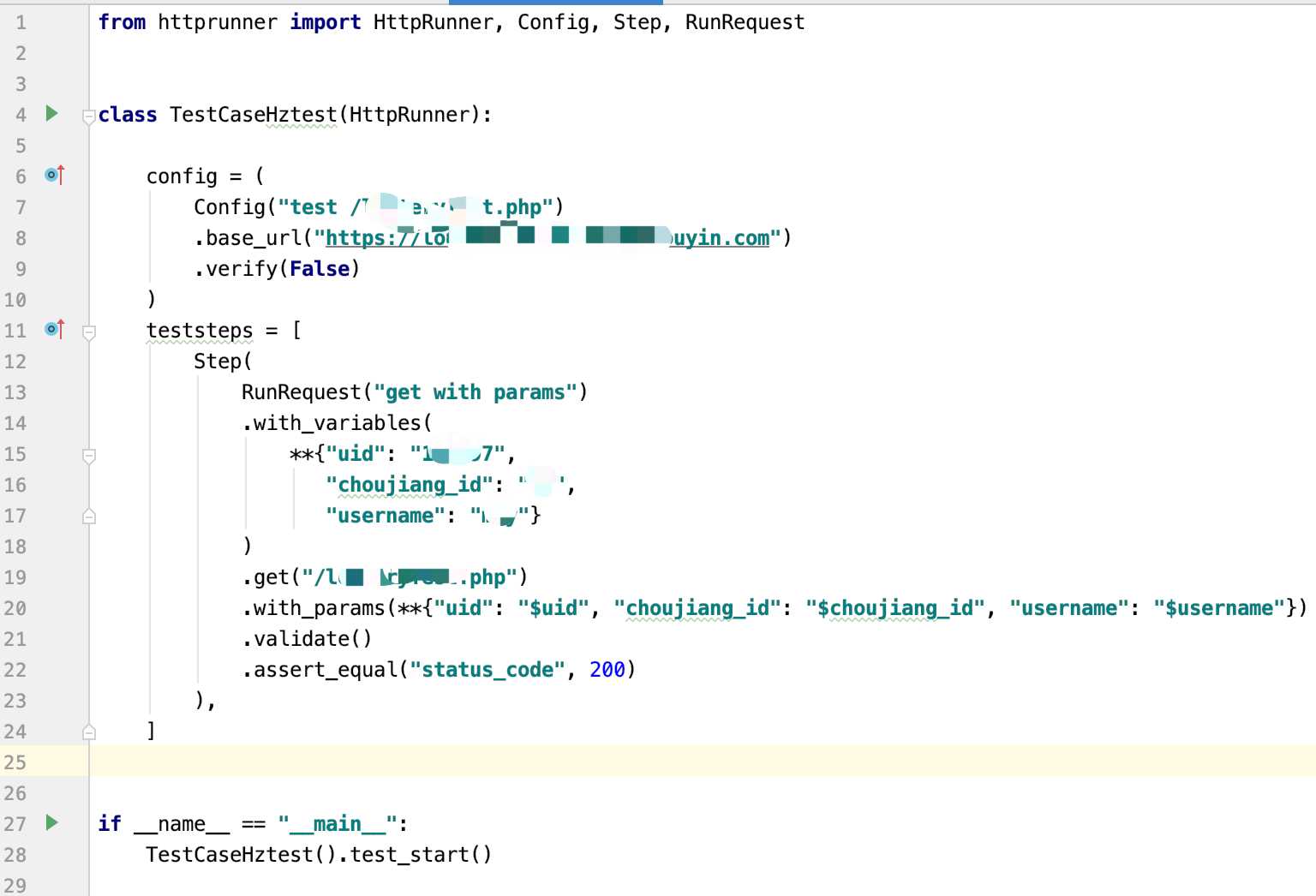标签:base code 数值 params run mic conf pch style
在 HttpRunner 中,支持变量声明(variables)和引用($var)的机制。调用函数(${func($var)})
在 config 和 test 中均可以通过 variables 关键字定义变量,然后在测试步骤中可以通过 $ + 变量名称 的方式引用变量。
区别在于:
在 config 中定义的变量为全局的,整个测试用例(testcase)的所有地方均可以引用;
在 test 中定义的变量作用域仅局限于当前测试步骤(teststep)
一般写用例的时候,最好把可能会变的参数单独写个变量。做到测试数据和代码的分离,以便后续维护。
如果step和config中variables声明的参数名相同,在运行测试用例的时候会取step里面的参数值
如果要设置一个全局变量,需把变量声明(variables)放到config下
config = ( Config("test /lotter*****st.php") .base_url("https://lotter****.com") .verify(False) .variables( **{"uid": "14**7", "choujiang_id": "*9", "username": "**"} ) )
引用uid和choujiang_id/username变量用$uid,$pchoujiang_id,$username 完整的脚本如下:

如果在steps下声明的变量,作用域只在当前steps下有效。声明变量用with_variables,变量和对应值用键值对,如
Step( RunRequest("get with params") .with_variables( **{"uid": "14**7", "choujiang_id": "**", "username": "**"} ) .get("/lotteryTest.php") .with_params(**{"uid": "$uid", "choujiang_id": "$choujiang_id", "username": "$username"}) .validate() .assert_equal("status_code", 200) ),
完整代码如下:

运行结果如下:

httprunner 3.x--variables变量和声明
标签:base code 数值 params run mic conf pch style
原文地址:https://www.cnblogs.com/may18/p/13375540.html